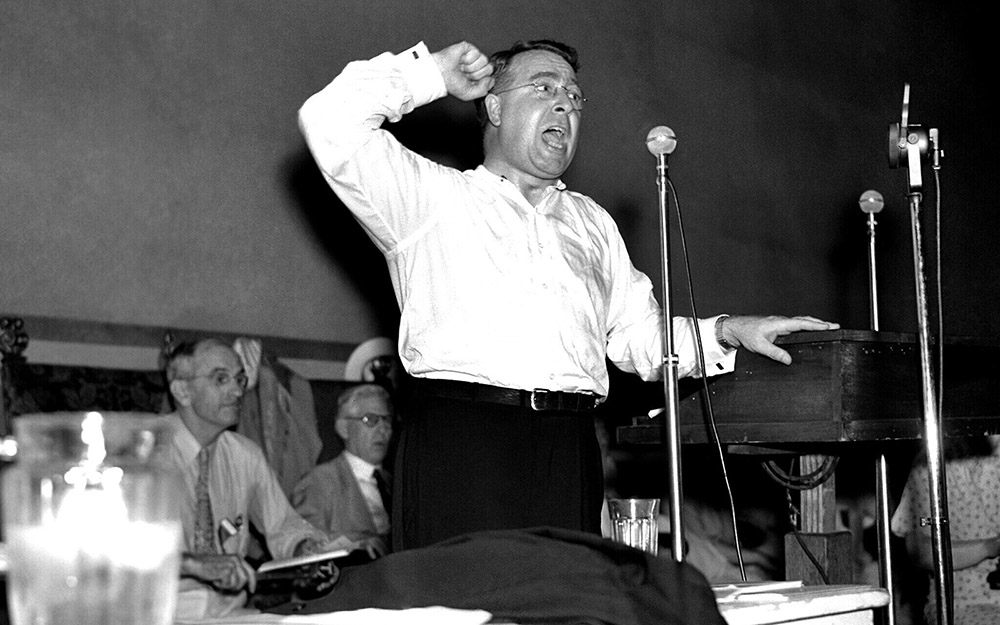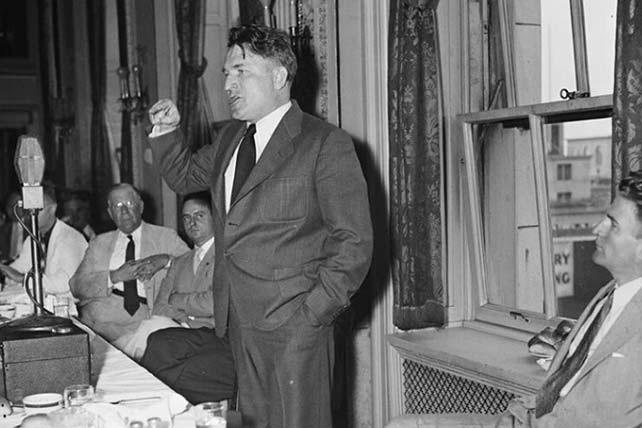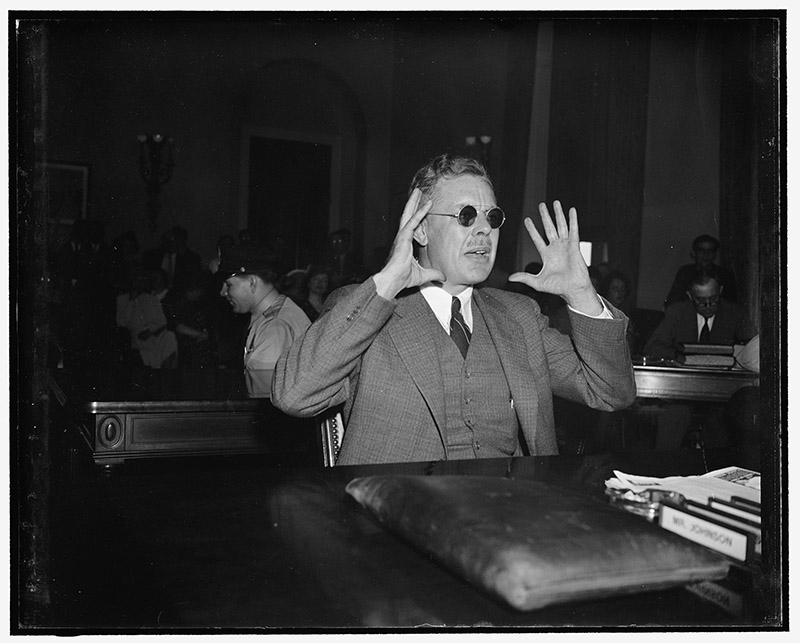This tracks with PRRI’s poll, which found that Americans who believe that “Jewish people have too much power” are more likely to support Christian nationalist ideas than other Americans. Adherents of Christian nationalism, PRRI said, also believe that white Americans face as much discrimination as Black Americans and that America is being invaded by immigrants.
Proponents of Christian nationalism have long promoted their racist beliefs through Christian ideas, said Charles R. Gallagher, a Jesuit priest and professor of history at Boston College. This allows them to reach a larger audience that shares their beliefs but not necessarily their enemies.
“They are very shrewd in how they use the original principles of Christianity to suit their political or nationalistic goals,” said Gallagher, author of “Nazis of Copley Square: The Forgotten History of the Christian Front.”
Gallagher traces Christian nationalists back to the early 1900s, when conservative Christians witnessed firsthand Russia’s Bolshevik Revolution. Among them was William Dudley Pelley, a journalist and novelist, who’d gone to Russia as a volunteer for the YMCA and ended up covering the civil war for The Associated Press. He saw atrocities committed against Orthodox Christians by the Red Army.
“He experienced what he saw as a communist annihilation of Christian orthodoxy,” said Gallagher.
George Deatherage, chief of the Knights of the White Camellia, testifies before Congress in May 1939. Photo courtesy of Library of Congress/Creative Commons
Also in Russia at the time was George Deatherage, a young engineer from Ohio, who’d gone to India to work for a steel company. As part of his job, he traveled to Russia and met with Russian exiles, where he also learned about the persecution of Christians.
Deatherage and Pelley returned to the United States with a fear of communism and what became an intense hatred of Jews, the latter fueled by a baseless conspiracy theory known as “Judeo-Bolshevism,” which blamed Jews for creating communism to threaten Christianity at the behest of a cabal of Jewish leaders bent on world domination.
Pelley, who also spent several years as a Hollywood screenwriter, would go on to found the Silver Shirts, a pro-Nazi fascist group. Deatherage resurrected the KKK-related Knights of the White Camellia and started the American Nationalist Confederation, a Christian group whose newsletter featured a Nazi hooked cross on a banner of red, white and blue.
Both Pelley and Deatherage promoted what Gallagher called “ecumenical anti-communism,” which sought to unite Protestants and Catholics in a grand, global conflict against Judeo-Bolshevism.
Smith and the Rev. Charles Coughlin, a Catholic priest and star of the early days of radio, brought these ideas to a mass audience. Coughlin did it by way of his radio show, beamed across the nation by major networks and local stations; Smith by churning out his magazine, pamphlets, books and direct mail appeals in a never-ending stream.

The Rev. Charles E. Coughlin, founder of the National Union for Social Justice, shed his coat and collar in the hot convention hall in Cleveland on July 17, 1936, as he attacked the Roosevelt administration before the Townsend National Convention. (AP Photo)
“Few writers with so little literary skill have made such an indelible mark on so many people,” his biographer would write. “His words were like hoards of lemmings, plunging over a cliff into the sea. If he wrote enough, Smith thought, he could fill up the ocean.”
Even at a time when Catholics and Protestants often mistrusted each other, Coughlin and Smith found common ground in their hatred of communism, their antisemitism and their shared belief in both the cross and the flag.


